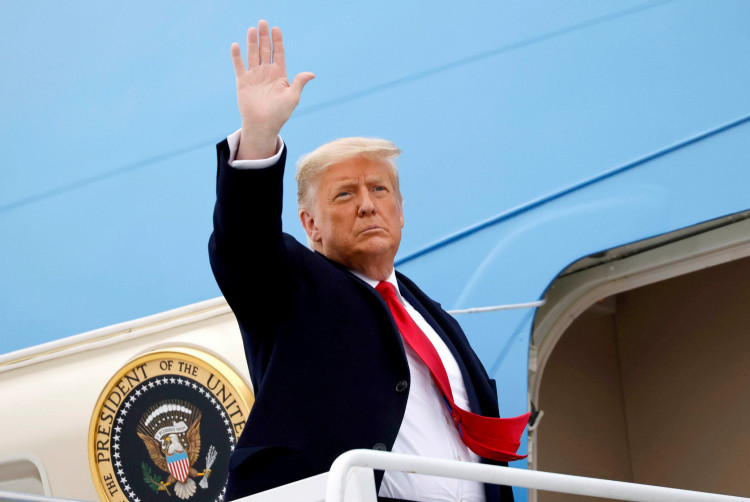President Donald Trump has withdrawn plans to attend Supreme Court oral arguments this week in a landmark case that will determine whether his administration's sweeping tariffs-covering imports from nearly every major economy-can legally stand. The move comes just days after Trump had publicly declared his intent to be there in person, calling the proceedings "one of the most important and consequential Decisions ever made by the United States Supreme Court."
"I will not be going to the Court on Wednesday in that I do not want to distract from the importance of this Decision," Trump wrote Sunday on Truth Social. He added, "If a President is not allowed to use Tariffs, we will be at a major disadvantage against all other Countries throughout the World, especially the 'Majors.' In a true sense, we would be defenseless."
The Justice Department has asked the Court to reinstate Trump's authority to impose so-called reciprocal tariffs under the International Emergency Economic Powers Act (IEEPA), a 1977 statute designed to give presidents flexibility in responding to national emergencies. The tariffs in question-ranging from 10% to 50% on imports from countries including Brazil, India, China, Canada, and Mexico-were introduced in 2024 after Trump declared an "economic emergency" tied to trade deficits and fentanyl trafficking.
If upheld, the decision would reaffirm broad executive control over trade policy; if struck down, it could upend one of Trump's signature economic tools and restrict future presidents' ability to impose tariffs without congressional approval. The case is being watched closely by economists, lawmakers, and global markets alike.
"This is a major confrontation between the executive branch and Congress," said Michael McConnell, a former federal appellate judge appointed by President George W. Bush and one of the attorneys representing plaintiffs challenging the tariffs. "It is practically what the American Revolution was fought over: the principle that taxation is not legitimate unless it is adopted by the representatives of the people."
Trump first invoked IEEPA in April 2024, claiming that the nation faced "a trade crisis" that warranted immediate unilateral action. Treasury Secretary Scott Bessent defended the move, telling Fox News, "Imagine if someone had held their hand up in 2006, 2007 and said 'we're on the verge of a housing crisis.' Well, President Trump raised his hand and said, 'we are on the verge of a ... trade crisis, and I'm going to use IEEPA.' That is what emergency powers are for."
An appellate court in August struck down the tariffs, ruling that the law does not grant presidents the authority to levy import taxes. In a split decision, four judges said IEEPA explicitly excludes tariff power, while three others ruled only that Trump's specific levies violated statutory limits. Two dissenting judges argued that the act's language could extend to trade restrictions, setting the stage for a complex Supreme Court review.
The stakes extend well beyond tariff policy. Elizabeth Goitein, a senior director at the Brennan Center for Justice, wrote that the decision "could shape whether the use of emergency powers to bypass Congress becomes a tool of routine governance." She noted that the Court's ruling may define "the outer limits of presidential authority in economic matters."
Neal Katyal, former acting solicitor general under President Obama, will argue the case against the Trump administration-an assignment he reportedly won via a coin flip among senior attorneys. The Justice Department, for its part, has urged the Court to defer to the president's judgment on what constitutes a national emergency, warning that overturning the tariffs could weaken America's leverage in global trade disputes.






